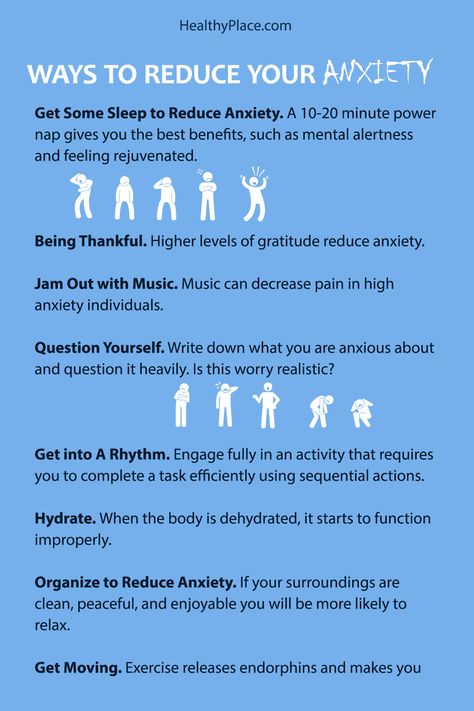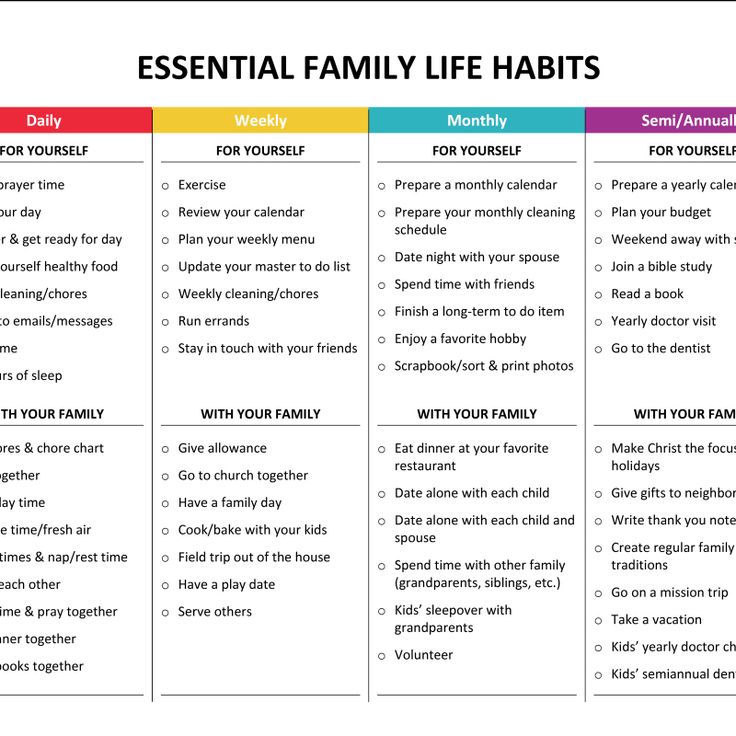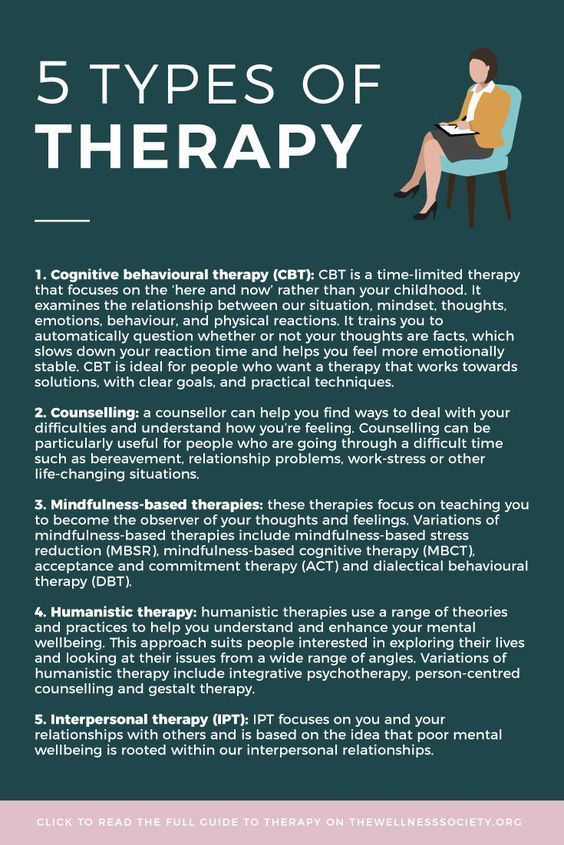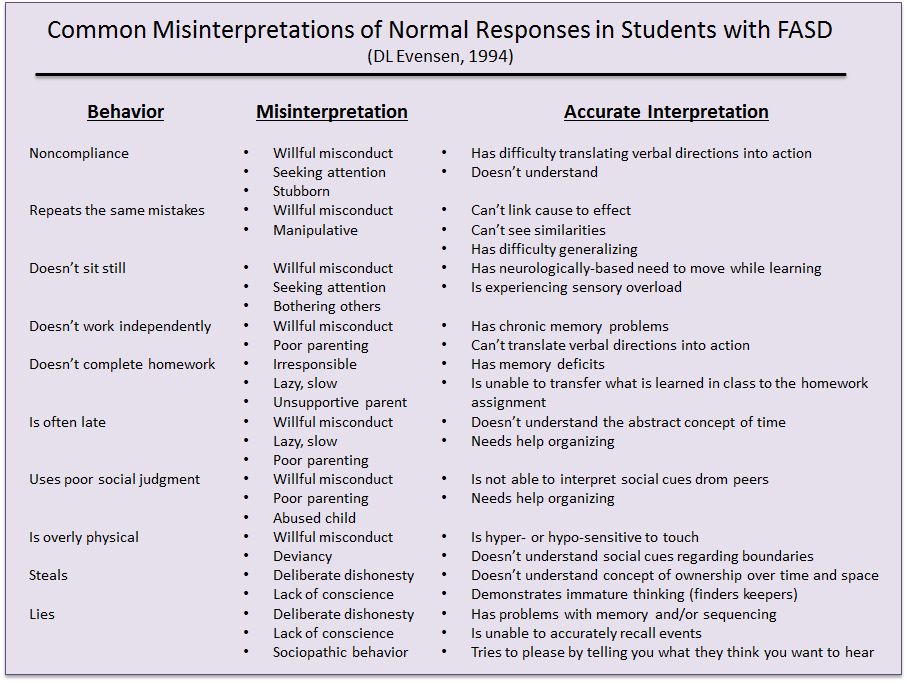Why do narcissists stare at you
What Is the Narcissistic Stare? (And 8 More Non-Verbal Signs of a Narcissist)
Narcissists are an emotionless, grandiose, and self-entitled group of people who manipulate others for their use. If you have ever been involved with a narcissist, you’ll know that they employ many devious tactics to get what they want.
What Is the Narcissistic Stare?
One of these manipulative tools is the narcissistic stare. Those cold, dead, unflinching eyes seem to bore into your very soul. But what exactly is it and why do narcissists use it? What other types of body language are typical of narcissists?
Let’s start with the stare.
Much like the psychopathic stare, narcissists use this same tactic as a form of control. As a rule, staring at someone for a prolonged length of time is seen as rude and unsocial. Not only that, but not many people can stare at another person without feeling uncomfortable themselves.
Narcissists stare for several reasons:
As a form of intimidation
Staring at someone for longer than a few seconds goes against all social norms. It is seen as a form of aggression, so it can feel intimidating when you are on the receiving end.
Studies show that people who are shy or lack confidence are likely to avoid eye contact. It can also indicate underlying disorders such as ADHD, Asperger’s Disease, or depression.
To make someone feel uncomfortable
According to studies, you should maintain eye contact for 3.33 seconds, then look away. Further research suggests that to maintain appropriate eye contact, use the 50/70 rule; look at someone for 50% of the time when you talk and 70% when you are listening.
Because most eye contact is within these boundaries, it can feel unsettling to receive too much.
As a form of love-bombing
Have you ever spoken to someone and it is obvious they are giving you their complete attention? Did you feel as if they were looking into your very soul with their intense gaze?
Narcissists will often use this intense stare to introduce a sense of closeness. Staring deeply into another person’s eyes is intimate and even sexual. You feel as if you are the only person that matters.
You feel as if you are the only person that matters.
Remember, narcissists are schooled in charisma, and present themselves as the ideal partner, at first.
8 Non-Verbal Signs of a Narcissist
1. A blank expression
The blank expression is at the opposite end of the spectrum to the narcissistic stare. Sometimes, a narcissist will look right through you. Or they have a vacant look on their face. This isn’t because they are concentrating on what you are saying. Far from it.
Narcissists don’t listen to other people unless they are the hot topic of conversation. So, if you are not talking about them, their eyes will glaze over as they lose interest.
2. Distinctive eyebrows
According to a recent study, eyebrows are the windows, or at least – the frames, to the narcissistic soul. We use our eyebrows to communicate different emotions such as surprise, fear, and anger.
However, research suggests that we can also use eyebrows as a marker for narcissistic traits.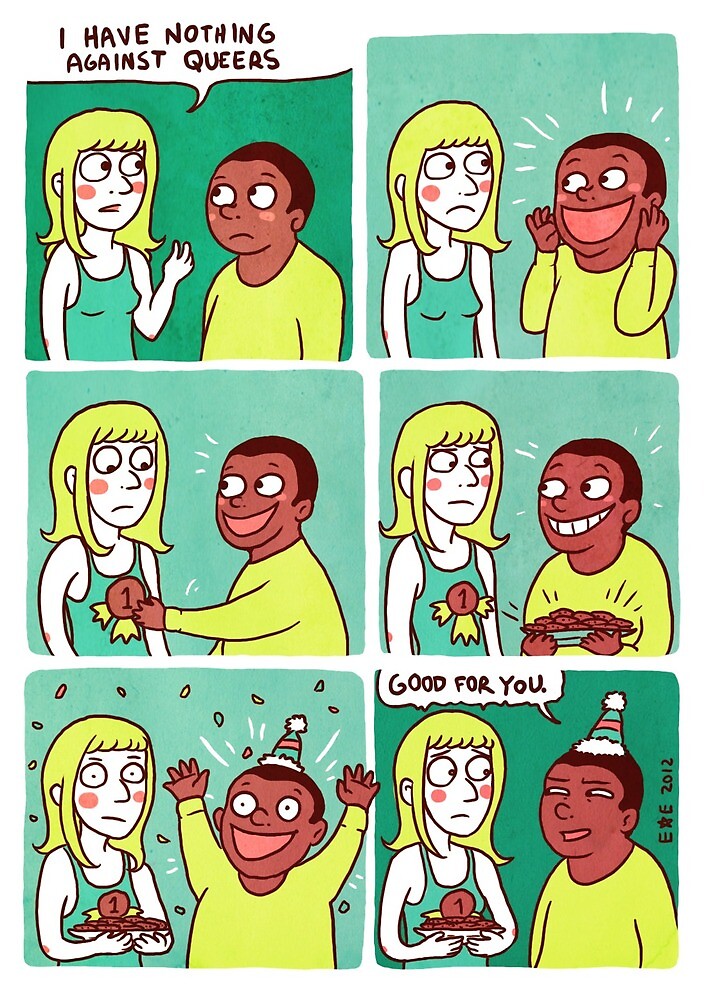
We associate narcissism with well-groomed or distinctive eyebrows. As the study authors said:
“Individuals reporting high levels of narcissism tend to wear more fashionable, stylish, and expensive clothing; have a neater, more organized appearance; and look more attractive.”
3. Imposing and disdainful posture
As well as the narcissistic stare, if you want to spot a narcissist, look for someone with an imposing posture. Narcissists look down on people and whether they are aware or not, their disdain shows in their body language.
Narcissists hold their heads up high and puff their chests out. They physically make themselves larger and occupy more space. Watch out also for the power stance. Politicians use this to command respect. This is where people in power stand with their legs far apart.
4. Inappropriate reactions
Narcissists are not empathic, nor can they properly read other people’s body language. They don’t understand typical social cues, such as sadness when a person is upset, or joy when they are happy.
A narcissist will react inappropriately to these situations. For example, they may laugh at a funeral or remain emotionless when someone tells them good news.
5. Palms facing inwards
Most people use open hand gestures to convey a sense of friendliness and a willingness to listen. This includes non-verbal signs such as open arms and a relaxed posture.
However, the narcissist is not interested in how you are feeling. It is all about them remember? So they tend to keep their palms facing inwards towards themselves when they gesture. This is a subtle reminder to you to concentrate on them.
6. Personal space invaders
Have you ever met someone for the first time and they have immediately invaded your personal space? Did you feel uncomfortable and try and back away? Could you tell they had no idea how awkward you felt?
Whether it is physical or psychological, narcissists have no boundaries. If there is a queue, they have to be in front. They are happy to interrupt a conversation and insert themselves into the dialogue.
They are even known to push others out of the way to get attention from a group.
7. They dominate conversations
Sometimes it is relatively easy to spot the narcissist in the room. Simply listen for the loudest voice or the one person dominating a conversation. Of course, some people just like to be the centre of attention. That doesn’t make them narcissists.
However, listen to the content of the dominating voice. Are they disclosing personal information that is not appropriate for a social gathering? If so, there’s your narcissist.
It is that boundary thing again. As well as invading your personal space, narcissists like to shock others into noticing them. They will do this by revealing something others would normally keep to themselves.
8. Eye rolls, smirks, and yawns
Narcissists not only reveal inappropriate details of their life, but they are also unconcerned with how they appear to society in general. What is deemed as normal social etiquette bypasses the typical narcissist.
This shows up in their body language as inappropriate social behaviour. For example, if they are bored, they may yawn in front of the person. If they disagree, they roll their eyes.
Narcissists conduct themselves outside societal norms because they don’t care about hurting other people’s feelings. People usually hide these types of feelings. They may look away or stifle a yawn, but narcissists do not.
Final thoughts
It is not just the narcissistic stare that exposes narcissists in society. Thankfully, many other non-verbal signals alert us to their presence. If you know of any other signs of a narcissist, we’d love to hear from you.
- Author
- Recent Posts
Janey Davies, B.A. (Hons)
Sub-editor & staff writer at Learning Mind
Janey Davies has been published online for over 10 years. She has suffered from a panic disorder for over 30 years, which prompted her to study and receive an Honours degree in Psychology with the Open University. Janey uses the experiences of her own anxiety to offer help and advice to others dealing with mental health issues.
Janey uses the experiences of her own anxiety to offer help and advice to others dealing with mental health issues.
Latest posts by Janey Davies, B.A. (Hons) (see all)
Copyright © 2012-2023 Learning Mind. All rights reserved. For permission to reprint, contact us.
Why Do Narcissists Stare? 5 Reasons Why They Glare 👀
Contents:
|
A stare may seem pretty insignificant, after all, we've all had an awkward experience taking the subway, for example, and noticing that a stranger's eyes were fixed on us for longer than a few seconds. Well, narcissists take this gaze to a whole different level and use it as a weapon to control their prey. They say that silence speaks a thousand words, but I actually think an insisting gaze does.
>>> Read; What is hoovering?
Nothing can tear their eyes away...
1) Staring is a form of love bombing
These expert manipulators will attempt to mask their truly menacing intentions behind doe-eyes and affectionate glances, but the truth is, they aren't fooling anyone. They typically turn to the love-bombing tactic early in a relationship, as a way of convincing their prey that they are the perfect partner. Here, they'll shower their future girlfriend with endless compliments, gifts, and looks of lust on a daily basis. Yep, no form of PDA is over the top for these calculating creeps.
2) They use it to make victims feel threatened
Whilst narcissists like to pretend that they are upstanding citizens and amazing partners, the reality couldn't be any different. In fact, these folks are more like sulky petulant children than anything else, except they have a dangerous edge to their personalities, meaning they will do anything to get what they want. Now, in order to back their victims, who by the way will no doubt lack buckets of self-esteem, into a corner, they'll constantly observe them. No matter what their partners do, these abusers will have tabs on them, to the point where privacy becomes an alien-like concept.
Now, in order to back their victims, who by the way will no doubt lack buckets of self-esteem, into a corner, they'll constantly observe them. No matter what their partners do, these abusers will have tabs on them, to the point where privacy becomes an alien-like concept.
3) It's a way for them to analyze your emotional state
Whilst these evil personalities arguably have way more flaws than qualities, we must recognize just how good their observation skills are. Indeed, they have a talent for picking up on things that slide under the radar for most of us, especially where character weaknesses are concerned. Just by observing someone for a matter of minutes, they'll have figured out exactly how to control them and dominate their life! This is terrifying, right?!
>>> Read; What are the weaknesses of a narcissist?
4) They want to assert their control
Nothing a narcissist does is spontaneous and if they want to start a staring contest it's not just for fun, instead, it's to establish a sense of control. With their chilling stares and figuratively cutting looks, they'll want to demonstrate how domineering and strong they are. Plus, they'll use this seemingly innocent gesture as a means to suggest that they'll never back down from any challenge, meaning their partner should never rebel against them.
With their chilling stares and figuratively cutting looks, they'll want to demonstrate how domineering and strong they are. Plus, they'll use this seemingly innocent gesture as a means to suggest that they'll never back down from any challenge, meaning their partner should never rebel against them.
5) Leering is a form of attention-seeking
Like I said beforehand, these monsters have an immature side to their personalities, meaning when they date someone, they want to monopolize all their attention, pretty much 24/7! Now, by throwing out void stares, they are looking to become the center of their partner's attention and will insist on looking at them until they get it. You've guessed right, they'll never back down or, in this context, look away.
Editor's opinion - Express your discomfortNarcissist or not, just because someone tries to throw their weight around with you doesn't mean you have to accept everything they attempt to subject you to. 🤗 Understand yourself, accept yourself, be happy... Let’s do it here and now! #BornToBeMe |
Be sure to check out these articles too;
- 16 Gaslighting phrases
- Do narcissists always come back?
- How narcissists treat their exes
self-dislike, total loneliness, shame and other symptoms of narcissism - Knife
- How to understand that I have a narcissist in front of me?
- During communication, you will feel some falseness. Narcissists present themselves through a false self that is designed to please. That is, the narcissist will casually say how well things are going for him, with a natural gesture he will demonstrate an expensive watch, a phone, you will be completely sure that this person is very pleased with himself. nine0005
nine0005
— And if we come to his office, will all the awards and diplomas from elite universities hang on the walls?
- Narcissists act more gracefully. Rather, you will feel it in communication. And if he chose you as an interlocutor, of course, this means that you are the best for him now. He will be very sensitive to your desires, whims, will give you the best flowers, the best jewelry.
- And if the narcissist and I have been talking for a while, and somehow I decide to wear a short skirt and not shave my legs, or he sees me tucking a hole in a sock between my fingers. How much hate will pour out on me? nine0004
— The narcissistic personality finds it very difficult to maintain relationships. It’s very difficult for her to see you as a person, as a person, so at first you will be idealized, then it will start: “You didn’t wear something today ... In general, you need to dye your hair for a long time, and your varnish is stupid,” - a person with a narcissistic personality disorder will start to hurt you somehow at the moment when he wants to interrupt communication. It's about personal relationships. There is no serious rapprochement within the framework of work, so the narcissist will just compliment you. nine0005
It's about personal relationships. There is no serious rapprochement within the framework of work, so the narcissist will just compliment you. nine0005
- I heard that narcissists often use gaslighting in communication. This is true?
— It could be. But one cannot say that there is only one pathology - a narcissist, and all other people are normal. We all have the so-called narcissistic radical.
You read a poem as a child, you were applauded, you most likely liked it. And in adult life, you, like many others, tend to achieve something, you want to be noted, set as an example, we all like it - this is a narcissistic radical. It's just that for some it is hypertrophied. nine0004
There is also nuclear narcissism, but this type of person is rare and almost unbearable. One day, a man with nuclear narcissism sued his son in order to see him and hand over a family heirloom. The young man did not want to communicate, he suffered, changed his place of residence, did not appear anywhere from his old places. But the father sued for alimony, and he was found. The man did not feel any discomfort about what he had done.
But the father sued for alimony, and he was found. The man did not feel any discomfort about what he had done.
— What is the difference between the desire to be liked by others of an ordinary person and a person with narcissistic personality disorder? nine0004
- First of all, the difference in intensity and focus on this desire. Also, the difference is whether you see a person in front of you. As I said, we all like it, we contact through self-presentation.
The narcissist sees the object. Often he just needs to be reflected in you: he looks at himself through your eyes, which is why the meeting does not occur, he does not contact you, but with himself.
This is the main catch: people who enter into a relationship with a narcissist believe that the partner sees them. This is not true. nine0004
This relationship is not about you, not for you. They are to make him, the narcissist, feel comfortable reflected in your eyes.
- How can you communicate with a person without imagining that he feels something?
- Oh, very simple. For example, I am sitting in the office, a patient comes to me and says: “Lord, I have been waiting for our meeting, you are so beautiful, you are just a light in my life”, and then for 50 minutes he says: “You understand that are you a fool? Just because you are a woman." You answer him: "You know, but it's unpleasant for me to hear it." “What do you mean unpleasant? You must hear it, and you must acknowledge it." This is how a narcissist manifests himself in communication. nine0005
For example, I am sitting in the office, a patient comes to me and says: “Lord, I have been waiting for our meeting, you are so beautiful, you are just a light in my life”, and then for 50 minutes he says: “You understand that are you a fool? Just because you are a woman." You answer him: "You know, but it's unpleasant for me to hear it." “What do you mean unpleasant? You must hear it, and you must acknowledge it." This is how a narcissist manifests himself in communication. nine0005
- So he tells others that they should accept themselves as they are, but he does not think about it himself?
- He thinks he's right. And if you don't agree, you just don't understand anything. And you don't have the right to feel anything. Nobody allowed you.
Are narcissists themselves aware of what they are doing?
- Depending on the degree of violation. There are narcissistic people who understand that they can hurt another person, they have the ability to empathize, it's just harder for them to handle it. Usually the scheme is as follows: he did something, somehow asserted himself, saw that he had injured a person, felt shame. nine0005
Usually the scheme is as follows: he did something, somehow asserted himself, saw that he had injured a person, felt shame. nine0005
- Is it possible to throw a meme with the caption "ha, and this is you" to a narcissistic person? Can you make fun of her?
- According to Kernberg, the narcissistic personality is characterized primarily by a genetic propensity for aggression, and some people are afraid of narcissists because they are supposedly aggressive. Narcissists can really get angry because they are very sensitive to not accepting their opinion, it hurts them, for them it is a threat to their "self". But, most likely, the narcissist will be ironic and respond in kind. And it depends on you: if you have these narcissistic traits strongly developed, then it will be a very beautiful fight, a very beautiful confrontation: which of us is the alpha male. nine0005
— What is the root cause? Some narcissists said that they had a wormhole in their chest, a black hole, and they could not fill it with anything.
- The upbringing of a narcissistic personality occurs as follows: parents use the child as their narcissistic extension, then if something did not work out for the parent in life, for example, mother always wanted to play the violin. And now she decided that her son would definitely play the violin. If he plays well - a good boy, "I love you." Plays poorly or does not want to - a bad boy, "I don't notice you." nine0005
In an ideal world, mom and dad are soft receiving light that is directed at the child. The child manifests himself in every possible way, and his parents support his choice, the child does not become bad if he does not want to play the violin, the love of mom and dad will not disappear anywhere.
A mother who raises a narcissist is like a spotlight. Let's say if a child dances her favorite ballroom dances, then the mother begins to shine, and for the child this is an incredible high. As soon as the child does something wrong, the spotlight immediately goes out.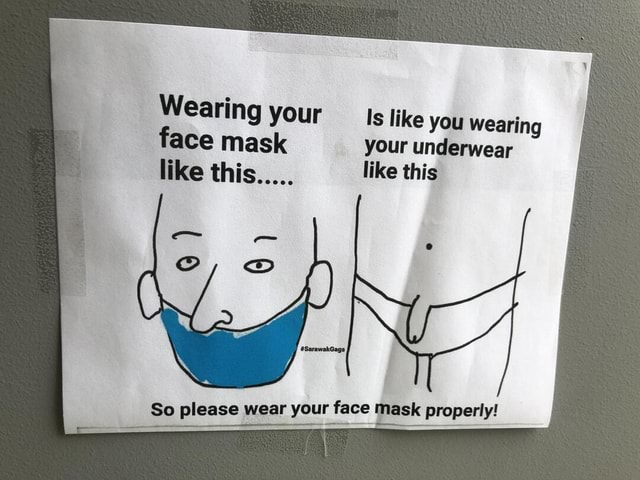 Fragmentary parts of the child's "I", fragmentary features, fragmentary behavior are highlighted. nine0005
Fragmentary parts of the child's "I", fragmentary features, fragmentary behavior are highlighted. nine0005
And thus a person understands very well that this is good in him and for this he is loved, but this is bad - this should be removed or not shown. And this facade is formed in a person, which he then demonstrates to everyone. And he does it in order to feel love.
But since these parts - his facade and the rest - are separated, he cannot see all of himself at the same time. In his eyes, he is either completely cool, or a complete nonentity. He doesn't feel.
A narcissistic personality can also be brought up by a mother who constantly admired her child. Even constant admiration implies constant appreciation. The child will still have frustration sooner or later.
That is, there are two main models: the first is when the child is humiliated and not accepted, the second is absolute adoration.
— And for the child to grow up normally, to understand his strengths and weaknesses…
— The narcissistic personality is normal. But to answer your question, it seems to me that it is important to be careful and broadcast that you accept the child as he is. If you are dissatisfied with something, then for the child it should be a separate experience. That is, you should explain that you are unhappy with how the child behaved in this situation, not " you are the worst and I would rather kill myself than raise such a child " , and " you did a bad deed, I am unhappy with your behavior " .
But to answer your question, it seems to me that it is important to be careful and broadcast that you accept the child as he is. If you are dissatisfied with something, then for the child it should be a separate experience. That is, you should explain that you are unhappy with how the child behaved in this situation, not " you are the worst and I would rather kill myself than raise such a child " , and " you did a bad deed, I am unhappy with your behavior " .
— And if a child runs up and shows a drawing “look what kind of house I drew” or “look how I hang on one arm” - this is already a call, does the child lack attention?
- This is a common behavior, because any child enjoys being praised when he shows his achievements. We are social, we create something, it is very important for us to reflect at this moment - I did something, achieved something - I was favorably reflected. nine0005
— Can a narcissistic parent encourage their child to incest? If so, after this trauma, can the child also become a narcissist?
- A father may perceive his daughter as an exciting object and want to take possession of her. Or, for example, a mother may use her son as a narcissistic extension. Suppose her husband left her, and she shifts all responsibility onto her son, highlighting masculine qualities in him. At some point, this can even lead to incest.
Or, for example, a mother may use her son as a narcissistic extension. Suppose her husband left her, and she shifts all responsibility onto her son, highlighting masculine qualities in him. At some point, this can even lead to incest.
But what we don't do, we don't generalize. Especially when it comes to psychotherapy. Because you can't say: yeah, you were sexually abused, you were seduced by your mother or seduced by your father, then you will be a narcissist. Hard words should be avoided. First of all, we look at how this personality developed in its individual experience, how it is arranged.
- And if a narcissist has grown, how to communicate with him? Let's say I'm dating a narcissist.
- Respect your boundaries. You need to be as attentive to yourself as possible. It's the most important. And the second point - there is a very bad strategy that draws you into such a relationship - to tame the dog that bites you. nine0005
Some people choose a challenge for themselves called "And he will still be mine.
 " He will never be yours.
" He will never be yours. You will suffer and suffer, but he will not be yours. And in a relationship, it should be good for both. Preferably at the same time.
- That is, in a good way, you need to sit, be aware that such a person, he does not love me, most likely, loves only himself ...
- They do not like themselves very much. Inflated self-esteem is not equal to self-love. Even if you love him, he will not be able to believe it. So you say: "You are the best." And he really knows what he is. He tries to cram as much love into himself as possible, but this void cannot be filled. nine0005
- Why can't he love himself?
- Because love implies acceptance of one's limitations as well. And to see one's limitations means for the narcissist to meet those fragments, features that are rated as unworthy. When he sees them, he becomes ashamed. And when he talks about himself, he is also ashamed - he knows that he is not the best. And no matter how he demonstrates how wonderful he is, he hides this feeling of his insignificance.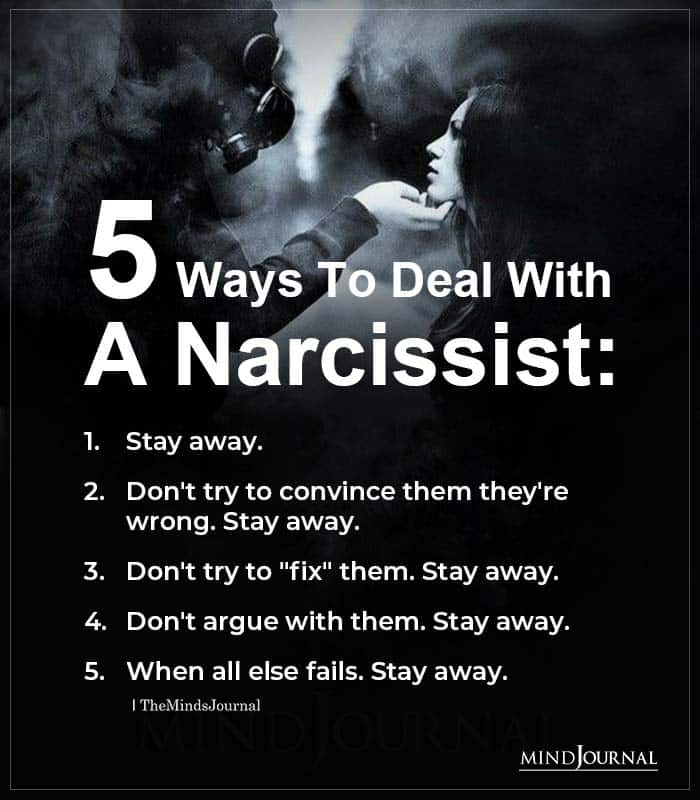 This is polarity. nine0005
This is polarity. nine0005
— Then this shame quickly disappears?
- No, he is not forgotten. In general, shame for a narcissist is a signal of danger, a signal that a rapprochement has begun and soon you will see his real one. Or he feels shame when he failed in front of your eyes - you can see what a loser he is, what he really is.
- Can a person under the influence of a narcissist become a narcissist? Let's say I have a long relationship with a narcissist, he is a dominant narcissist, and after talking with him I insult waiters, throw money in the face of taxi drivers, etc.
- It is not sexually transmitted. It is impossible to change your character in the direction of a narcissist, because character is formed mainly in childhood. If you insult the waiters, perhaps this is a manifestation of something else, for example, you hold aggression for a long time and go and discharge yourself in another place, because in a relationship you cannot do this: it’s scary, for example.
- And how to kill the narcissist in yourself? Can this be changed?
“You can’t change yourself, you can learn how to treat yourself,” psychologists say. Narcissistic manifestations will still be. But you can accept those very "unworthy" fragments and features. And the therapy of a narcissistic personality is precisely based on the fact that a person sees his second part, demonstrates it in contact with a therapist and accepts it. This helps a person overcome anger, shame, feel that he can be dependent, weak, not be able to do something, while others will still accept him. nine0005
- Is it possible to say that narcissists are deeply unhappy people?
— Yes, absolutely. It's incredible pain. Inability to contact with another person, inability to be present authentically. You constantly feel that something is missing and there is nothing you can do about it.
Imagine how a person who suffers but cannot show it feels. This is loneliness.
 It's incredible loneliness.
It's incredible loneliness. At the same time, narcissists are most often successful, they are surrounded by a lot of people. And this is their suffering. nine0005
Narcissus is like a jigsaw puzzle that just can't fit together.
- Let's say my relative is a narcissist, and I want to help him. What would you suggest?
- You can try to send him to a psychotherapist. But this is a dangerous game that, in my opinion, is not worth playing. Who are you to help a narcissist? He is unlikely to meet with applause for your actions. Take care of yourself: keep doing what you are interested in, what brings you pleasure. And about this ...
Some things cannot be changed. And to change another person is not that we have the right to do so.
A person must come to a psychotherapist himself, except in those cases when he can no longer do anything, as in case of clinical depression - then he is taken to a psychiatrist. In all other cases, psychotherapy is voluntary.
— How long does therapy last?
- Long, 5-7 years. But if this is an extreme case, nuclear narcissism, then it is no longer amenable to adjustment. nine0005
- Now there is a lot of different informational garbage: everywhere they write about schizophrenia, depression, etc., and people begin to see these symptoms in themselves. But maybe you could say what signals you should pay attention to in order to think and decide: "I probably need to go to a psychotherapist."
- When you stop rejoicing. It seems that you run and achieve, but there is no pleasure in this. Often you can notice a strong boredom, the desire to live disappears, there is a certain sense of meaninglessness. If it is, you should go to a psychotherapist. nine0005
- Looks like depression.
- Very similar. But with depression, it will unfold a little differently. There is, for example, a depressive episode: suddenly some situation happened that a person cannot survive. And in narcissistic disorder, the first thing a person experiences is the feeling of "I achieve and feel nothing." This duality arises.
And in narcissistic disorder, the first thing a person experiences is the feeling of "I achieve and feel nothing." This duality arises.
And, as I said at the beginning, narcissism is inherent in all of us in one way or another: we strive for excellence, we want to achieve something, to become someone, so we say “I’m never a narcissist, everything is fine with me” it is forbidden. nine0005
Where do narcissists come from and how do they live? In a narcissist, interaction with parents occurs according to the pendulum scheme, which ultimately negatively affects the child's psyche. Mother and father endlessly evaluate all actions. Any achievements are praised, and then depreciated: "Could be even better." Or they are compared with the results of other children. This leads to an internal conflict: the child does not understand where the limit of perfection is to be achieved. nine0005
The little man is taught to depend on external evaluation and strive with all his might for approval. Such an attitude negatively affects self-esteem, a narcissistic drama arises. On the one hand, the child wants to feel unique and inimitable, and on the other hand, he understands that he is one of many, but not the best.
Such an attitude negatively affects self-esteem, a narcissistic drama arises. On the one hand, the child wants to feel unique and inimitable, and on the other hand, he understands that he is one of many, but not the best.
There may be such an option: he lived with his grandmother, who constantly praised him and admired him, then he ended up with his mother and father, who suddenly began to criticize him.
A characteristic manifestation of narcissism is the “excellent student syndrome”: five or nothing. Thus, absolute trust in the opinions of others is born and one's own internal achievements are depreciated. The child agrees to the demands of the parents. Narcissism begins to prevail in his personality structure, he tries to get love, approval and “stroking” from everyone.
In today's world, daffodils are associated with endless Instagram selfies for "likes"
But even under the same conditions, many reject this position, rebel against it. They do not succumb to constant criticism and the pendulum. At some point, they say: “Yes, I am like that. Okay, I'll be a doppelgänger." It is also believed that there is a genetic predisposition to narcissism. As for the parents of such people, they look very positive: they are always present at competitions, school meetings. For those who do not know what kind of moral pressure there is at home, the picture seems to be quite prosperous. nine0005
They do not succumb to constant criticism and the pendulum. At some point, they say: “Yes, I am like that. Okay, I'll be a doppelgänger." It is also believed that there is a genetic predisposition to narcissism. As for the parents of such people, they look very positive: they are always present at competitions, school meetings. For those who do not know what kind of moral pressure there is at home, the picture seems to be quite prosperous. nine0005
Sigmund Freud was the first to introduce the concept of narcissism into psychology. He said that narcissistic trauma occurs when a child who has adjusted to overprotection leaves the parental nest and faces the outside world. Here around him there are people with their own interests. The main trauma occurs during this period.
How not to raise a narcissist
How to minimize personality traits that will interfere with self-realization and create difficulties in the life of a child? Showing love is a must. But provocations of selfishness, endless praise and exaggeration of the merits and achievements of the child must be said "no". nine0005
nine0005
Freedom in choosing friends - yes. But from childhood it is necessary to explain the meaning of the proverb "with whom you will behave ...". And most importantly, demonstrate by example. After all, being together with positive, friendly, inquisitive friends, the child will become kinder, happier. He will open up and show the capacity for empathy and cooperation.
Pay attention to teaching moral categories, understanding that any individual person is not the center of the universe. Instill a reverent attitude towards all living things, an interest in the diversity of the world. This will allow you to bring up a happy person who understands that he is part of the environment and is in love and harmony with him. nine0005
Self-promotion of a modern narcissist
In the modern world, these people are associated with endless selfies for Instagram (an extremist organization banned in Russia) for the sake of “likes”. This can rightly be called "the narcissism of our day. " Bright and demonstrative statements about themselves loved ones reflect not public opinion, but their own. Against the background of their “achievements”, the merits of Nobel Prize winners, world-famous athletes and Hollywood stars fade.
" Bright and demonstrative statements about themselves loved ones reflect not public opinion, but their own. Against the background of their “achievements”, the merits of Nobel Prize winners, world-famous athletes and Hollywood stars fade.
The modern "narcissist" has learned to promote himself in such a way that not only he admires himself, but also others have this opportunity. Unfortunately, he cannot answer those around him in the same way. He is not able to rejoice in other people's successes and successes, because he perceives them as obvious obstacles to proving his superiority. This is where the problem arises. nine0005
Interaction with others
To achieve goals, one must be able to unite with other people. By cooperating, we multiply the common victories. In collaboration, we find the best way to solve problems and tasks that arise even with a perfectly thought out plan.
In such a person, due to the absolute concentration on himself, empathy is very poorly developed. Lack of emotional flexibility and the ability to empathize with others leads to the inability to successfully build long-term relationships. Narcissists do not make great business partners, colleagues, or employers. But fortunately, in many creative professions, these people reach the heights: internally offended, as a result of throwing and searching, they create masterpieces. Perhaps this destroys their inner world, but it pleases art lovers. nine0005
Lack of emotional flexibility and the ability to empathize with others leads to the inability to successfully build long-term relationships. Narcissists do not make great business partners, colleagues, or employers. But fortunately, in many creative professions, these people reach the heights: internally offended, as a result of throwing and searching, they create masterpieces. Perhaps this destroys their inner world, but it pleases art lovers. nine0005
Family
In their private life, they also have a hard time. The narcissist believes that there is no one better than him in the world, he is distinguished by an increased degree of narcissism and external self-confidence. It is external, because in fact he endlessly has to prove his superiority to himself and others. Sometimes it is debilitating. Here he needs a family - an adorer in the person of the second half, who indulges all whims. But will each partner be able to withstand frequent mood swings, whims with comments “no one understands me, does not appreciate me. ” Hardly. nine0005
” Hardly. nine0005
He strives for society, because he is oriented towards evaluation, he wants to be admired
Narcissistic parents never realize their goals, because they are always changing - there is no limit to perfection. Children are created such conditions of competition, evaluation and depreciation that they had. If there are two children in a family, then one can be chosen as the embodiment of the ideal of a parent. He will be set as an example to another, who is called a loser for even greater contrast.
If a loved one is a narcissist
How to behave, how to help a loved one? Keep in mind that if you criticize, then the neurotic will appear even more. You should not create stressful situations for both of you, you need to direct wisely.
For example, something does not work out for him at work, but he looks at himself with a narcissistic look and does not notice anything. Try saying: “You are so talented, but what if you try here? I am sure you will reach unprecedented heights.
 Certain gestures make us feel uncomfortable (we don't need to explain why), yet when we feel on edge, we need to muster up the courage to speak out. Whether it be at work, on public transport, or in a bar, if someone is making you feel nervous and out of sorts, don't hesitate to communicate your malaise and thereby take control of the situation.
Certain gestures make us feel uncomfortable (we don't need to explain why), yet when we feel on edge, we need to muster up the courage to speak out. Whether it be at work, on public transport, or in a bar, if someone is making you feel nervous and out of sorts, don't hesitate to communicate your malaise and thereby take control of the situation.
